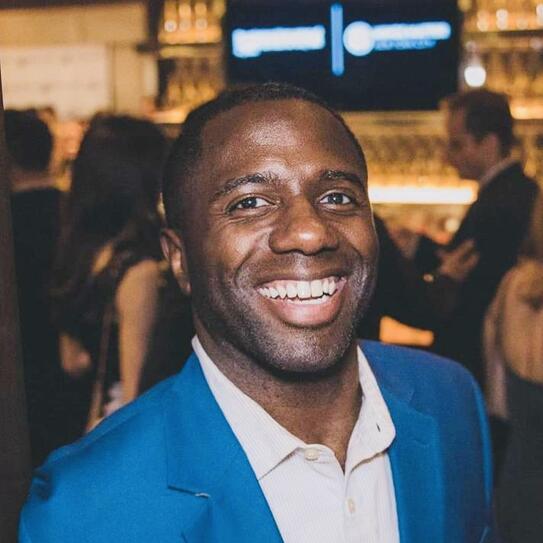Jonathan Smith

Current Company & Title:
Team Leader (Interim) at Bloomberg LP
Post-CBS Goals in Your Organization:
To continue leading a team of brilliant individuals whose goal is to provide comprehensive, reliable, and up-to-the-second information to the global community.
Prior to starting, what were you expecting the program to be like? How was it different than your expectations?
I expected the program to be a few things; all synonyms of the word ‘difficult.’ I was fortunate to graduate college and obtain a law degree from one of the nation’s best public universities. I moved 3,000 miles, passed the New York State Bar Exam, and practiced law for nearly seven years. However, there was something different about Columbia Business School. Something that made it so intimidating.
Maybe it was Morningside Heights, the Alma Mater sculpture, or the allure of learning from (and with) the best and brightest. Maybe it was the fear that my classmates would be driven by a level of ambition that would eventually lead to conflict. Or maybe it was the expectation that the professors would be stern and aloof, interested only in research and prestige. Regardless of the assumptions, I knew one thing for sure: I would receive the best business education in the world.
The bulk of my assumptions were wrong. Yes, my classmates are ambitious. But their ambition is matched by their kindness, curiosity, and desire to build lasting relationships. The stuffy professors of my cinematic dreams (nightmares?) are not the ones I’ve met. They are open, engaging, and devote hours outside the classroom to ensure an understanding of complex topics.
Fortunately, one of my assumptions is fact. At Columbia Business School, I’ve received the best business education in the world.
Why did you choose Columbia Business School? Or, what does a Columbia MBA degree mean to you?
I chose Columbia Business School to discover what was in the water. I’ve been lucky enough to know a handful of Columbia Business School graduates and each shares similar traits: curiosity, intelligence, drive, and a keen sense of self and others. Each of these traits, standing alone, is important—and many are found in graduates from top business schools all over the world. However, what sets these folks apart is that final trait. It has allowed them to excel as leaders, both of themselves and others.
How have your classmates help you balance work/life/family responsibilities?
My classmates have been a significant factor in my ability to balance all that life has thrown my way. Whether it’s late-night Zoom study sessions, weekend rooftop shenanigans, or post-class dinners, I can rely on this cadre of professionals to bring levity to an otherwise busy life.
Which faculty members(s) influenced you the most, and how?
Professor Paul Ingram has shown me what it takes to be a great leader. Through his course, Leadership and Organizational Change, I’ve been pushed to identify and reflect on the qualities, values, and motivations that drive me. For that, I am forever grateful.
What has been your most memorable experience at Columbia Business School so far?
Easy: Residence Week 2021. This five-day marathon left me humbled, exhausted, and yearning for more. It was a business school baptism by fire and provided our cohort an opportunity to struggle, learn, and celebrate together. I’ll never forget it.
Can you describe the EMBA community and why it is special?
The EMBA community is filled with smart, accomplished, and motivated individuals, each of whom brings a set of diverse experiences and backgrounds. What makes it special is the fact that everyone—students, faculty, and staff alike—is open. Open to growth, willing to listen, and generous with time, knowledge, and wisdom. I’ve yet to experience anything like it.
What advice would you give to a new student coming into the EMBA program at Columbia Business School?
Be open with your support network. Business school is hard—and work, family, and life obligations will require your attention. Lean on your inner circle and remain transparent; it’s the only way they’ll know to help. It’s okay to not be okay.
How will you apply your learnings to a post-COVID world?
One thing that immediately comes to mind is empathy. I’ve learned that empathetic leaders have an innate ability to motivate those around them. I will be one such leader.
A post-COVID world presents many unknowns. Priorities have been forever shifted and, to compete, organizations will need to employ empathetic leaders to help guide their workforce. If not, attrition will rise, revenues will fall, and businesses will fail.